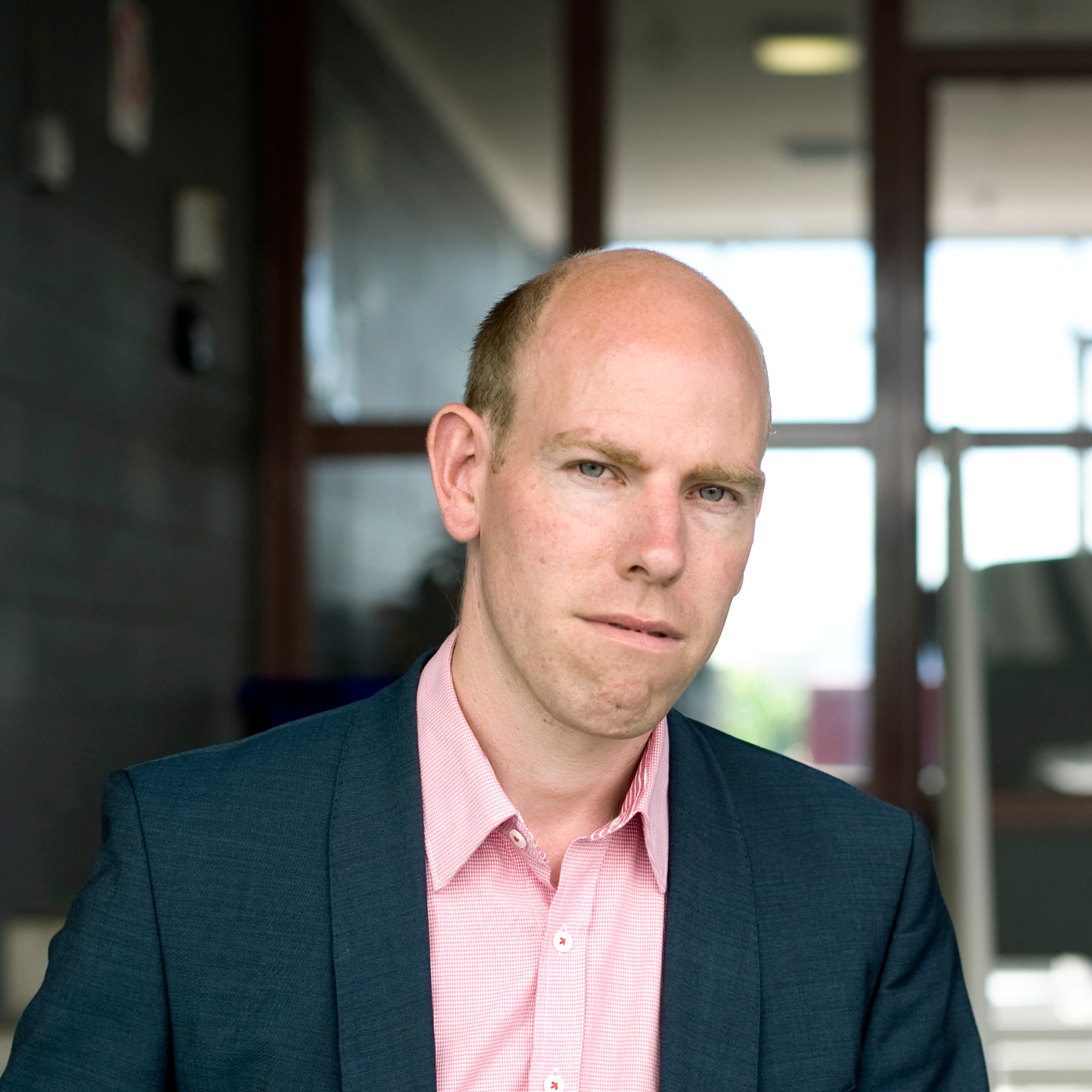Rossum’s Universal Robots
Hannah Playhouse, February
10-13
Written by Karel Capek
Performed by Hamilton
Performing Arts Company

Science fiction is all about change, so it's strange to see something from the genre that reminds you how little humans have advanced in the last 90 years. But then Rossum’s Universal Robots has a strange history. Written in 1920 by Karel Capek in a newly independent Czechoslovakia, its prophetic tale of artificial intelligence, automata and human morality was initially a big hit, but it then vanished from view, in New Zealand at least, before being revived in Hamilton last year.
The play opens as Harry Domin, the managing director of the eponymous firm, welcomes young Helena Glory to his factory on an unnamed European island, where they are churning out startlingly lifelike robots by the score. There is nothing particularly surprising in the subsequent story that pits the robots against their masters. But what is startling is the way in which the play anticipates almost every question we are now still grappling with when it comes to automation.
In the play the robots, being tireless workers, are putting humans out of jobs. Is this a bad thing, rendering much of human life useless? Or a good thing, freeing us from drudgery and giving us time to, in the words of one character, perfect ourselves? Is it dangerous to play God in this way, or is this just another example of the boundless creativity of humans? Will we ever make robots so good they no longer need us, and if we do so, will we perish?
Rossum's Universal Robots is bursting at the seams with these ideas – perhaps too much so. While it is a well-crafted story, far too much of it feels like a pre-prepared dialogue on important topics rather than a natural exchange of views between humans. Too many points are explained a little bit too much; too many lines of emotional weight are just dropped, left unanswered. The human characters are sometimes only marginally less opaque than the robots.
The result is a sometimes jerky pacing, and an atmosphere that is – ironically and unfortunately – a little robotic. Fortunately much of the acting is strong. Brendan West is good as Domin, getting across his character's odd mix of idealism and brutality, although there are moments, especially in his dealings with Helena, where a greater emotional range – more sorrow, more anger – would have been appreciated. For her part, Frankie Rose plays Helena well but perhaps with too much naivety and nervousness, making the strength she does eventually show harder to comprehend. In the end, Clive Lamdin as Alquist, the builder who warns against robots and longs for a return to honest hard work, is the most convincingly realised character, while there are strong cameos from the likes of David Bowers-Mason as Dr Gall.
Gall is responsible for one of the play's key moments when he sets the robots on the path to humanity by making them able to feel irritation. That he uses this feeling, rather than, say, love, is a nice example of the dark humour that Capek threaded through the play, but it's also telling for what it says about our fellow human beings. Capek famously gave the world the word robot, but he did so by drawing on the Czech word for serf, rab; his Czech coinage, robota, literally means serf labour.
As the robots seek their independence, form unions and confront their masters, the parallels with the plight of labourers in early twentieth-century Europe are unmistakable. And so, watching the play in 2016, we are invited to consider the conditions under which people now work. There is still a vast amount of slavery in the modern world, even if it is seldom acknowledged, and on top of that huge numbers of people performing repetitive, grinding work that gives them no satisfaction. What will they get from the coming wave of robotisation? They may be freed from manual work, but will they then be surplus to requirements?
Rossum’s Universal Robots doesn't discuss a universal basic income, arguing instead that robot labour will make everything so cheap that no one will need any income; but if machines really do put us all out of work, a tax on the people who own the robots, redistributed to the rest of the population as an unconditional subsistence-level payment, could start to make sense. By freeing people from work it would allow people to demonstrate their value to society in all sorts of ways, not just through the conventional jobs that the market has allocated.
We don't know yet whether that is the right approach, but it is those very human questions – or worth, of value, of what it means to reach our potential – that Rossum’s Universal Robots asks us to consider. A play ostensibly about machines turns out to be, ironically, a play about how we want to treat each other.



 Waipapa Taumata Rau: Daytime Boosts Immunity, Scientists Find
Waipapa Taumata Rau: Daytime Boosts Immunity, Scientists Find NZ Songwriters Trust: Winners Announced At Country Music Honours
NZ Songwriters Trust: Winners Announced At Country Music Honours NZ Principals Federation: Principals Describe Budget As Bitter Sweet
NZ Principals Federation: Principals Describe Budget As Bitter Sweet GfK Radio: Radio Listening Tops 3.5M Weekly Listeners
GfK Radio: Radio Listening Tops 3.5M Weekly Listeners  Jacob Douglas Motorsport: Douglas Heads To The Oval After Breakthrough Victory
Jacob Douglas Motorsport: Douglas Heads To The Oval After Breakthrough Victory Research For Maori Health and Development: Bridging The Gap In HIV Prevention For Māori - Insights And Resources Now Available
Research For Maori Health and Development: Bridging The Gap In HIV Prevention For Māori - Insights And Resources Now Available